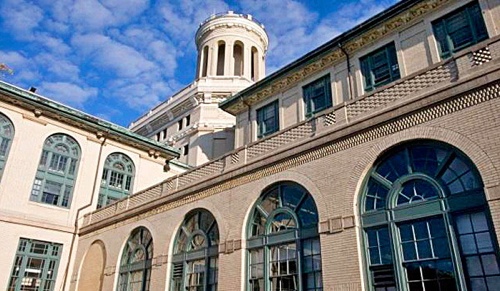Which business school has the best part-time MBA program in the U.S.?
That’s a question that is actually much harder to answer than asking the same query about full-time MBA programs. Few would dispute that Harvard or Stanford is on top when it comes to the full two-year MBA experience, though there are plenty of other prestige schools that are nearly every bit as good.
But when it comes to part-time programs, the stakes change considerably, largely because many of the very best schools do not offer their MBA programs in the evening. BusinessWeek has been publishing a biennial ranking of part-time programs since 2007 and during the four iterations four different schools have topped the list: Carnegie Mellon University’s Tepper School of Business climbed to the top this year (2013) after finishing third in 2011 and seventh in 2009. North Carolina-based Elon University’s Love School of Business was first in 2011. Worcester Polytechnic in Massachusetts was on top in 2009, and UCLA’s Anderson School claimed the title in BusinessWeek’s debut part-time ranking in 2007.
STRANGE RESULTS OVER THE YEARS FROM BUSINESSWEEK’S PART-TIME RANKING
No question, those are strange results, particularly when compared against full-time rankings. Elon? Worcester? We have nothing against those schools and we’re sure they are quality programs. But it simply strains credulity to think that those part-time programs can be better than those at the University of Chicago’s Booth School of Business, Northwestern University’s Kellogg School of Management, or New York University’s Stern School. BusinessWeek’s peculiar outcomes result from a methodology that is based on a survey of recent graduates, an academic quality measure that combines six school-reported data points—including average GMAT scores, class sizes, and completion rates—and a calculation of post-MBA outcomes.
That sounds credible enough (see more detailed explanation of their methodology later), but the result of the ranking should give readers significant pause. U.S. News & World Report also ranks part-time MBA programs and takes a completely different approach. It surveys the deans and directors of those programs and asks them to rank rivals on a five-point scale, with one meaning “marginal” and five reflecting “outstanding.” That poll accounts for half of the weight in its methodology. The magazine also throws in the average GMAT and GRE quantitative and verbal scores of part-time MBA students (15 percent), average undergraduate GPA (5 percent); work experience (15 percent); and the percentage of the business school’s MBA enrollment that is part time (15 percent).
While this method is hardly flawless, it does produce a more credible list of programs particularly at the very top: No. 1. UC-Berkeley, No. 2 Chicago Booth, No. 3 Northwestern Kellogg, No. 4 NYU Stern, No. 5 UCLA Anderson, No. 6 Michigan Ross, No. 7 UT-Austin McCombs, No. 8 Ohio State Fisher, with two great schools tied for No. 9, Carnegie Mellon and Indiana University’s Kelley School. Worcester is tied with seven other schools at a rank of 93rd. Elon is tied with three other schools, including Rutgers University in New Jersey, the University of Delaware and the College of William & Mary, at 69th.
BUSINESSWEEK ALSO RANKS PART-TIME PROGRAMS BY GEOGRAPHIC REGION
In any case, this year’s Bloomberg BusinessWeek ranking, published in November of 2013, had UC-Berkeley’s Haas School in second place, just a tiny fraction of a point from Tepper. Rounding out BusinessWeek’s top five was No. 3 Southern Methodist University’s Cox School, No. 4 UCLA, and No. 5 Elon. One aspect of BusinessWeek’s ranking that is somewhat helpful is the magazine’s decision to separate schools into six geographic regions and also rank them separately by region. After all, few applicants and fewer students stray far from their regions to attend a part-time program so regional breakdowns make a lot of sense.
According to BusinessWeek, the top part-time program in the Southwest is Southern Methodist University’s Cox School, which moved up four spots to third overall as a result of high student satisfaction ranks. BusinessWeek said “the program’s innovative mentoring program won raves from grads, and the strong Dallas job market didn’t hurt either, with nearly 80 percent of students reporting salary increases.”
In the South, Elon was first. BusinessWeek said Love “won high marks in student satisfaction, and grads raved that the contemporary curriculum made it possible to take classroom material learned in the evening and apply it at work the following day.”






Questions about this article? Email us or leave a comment below.